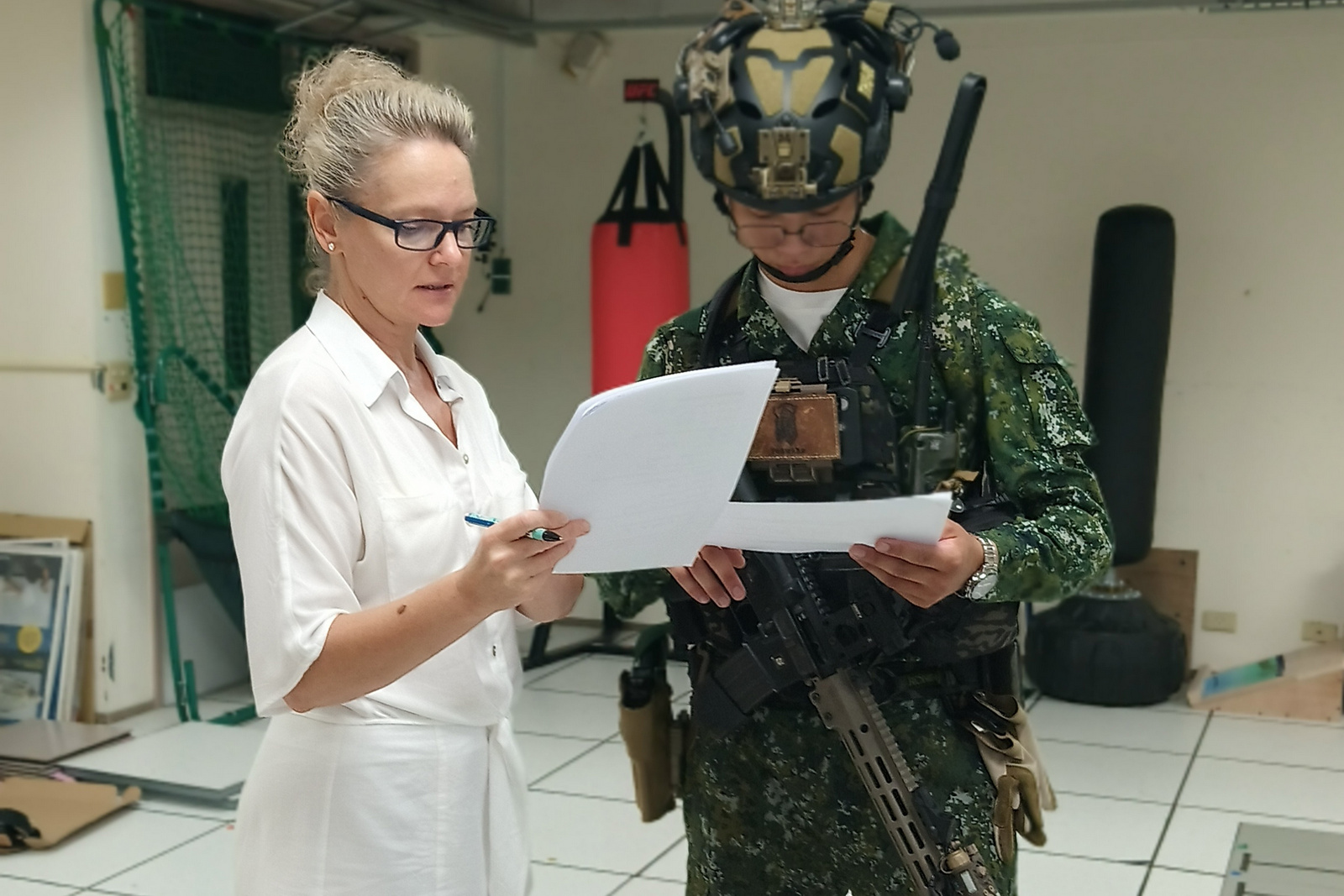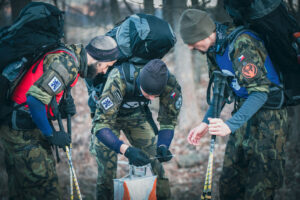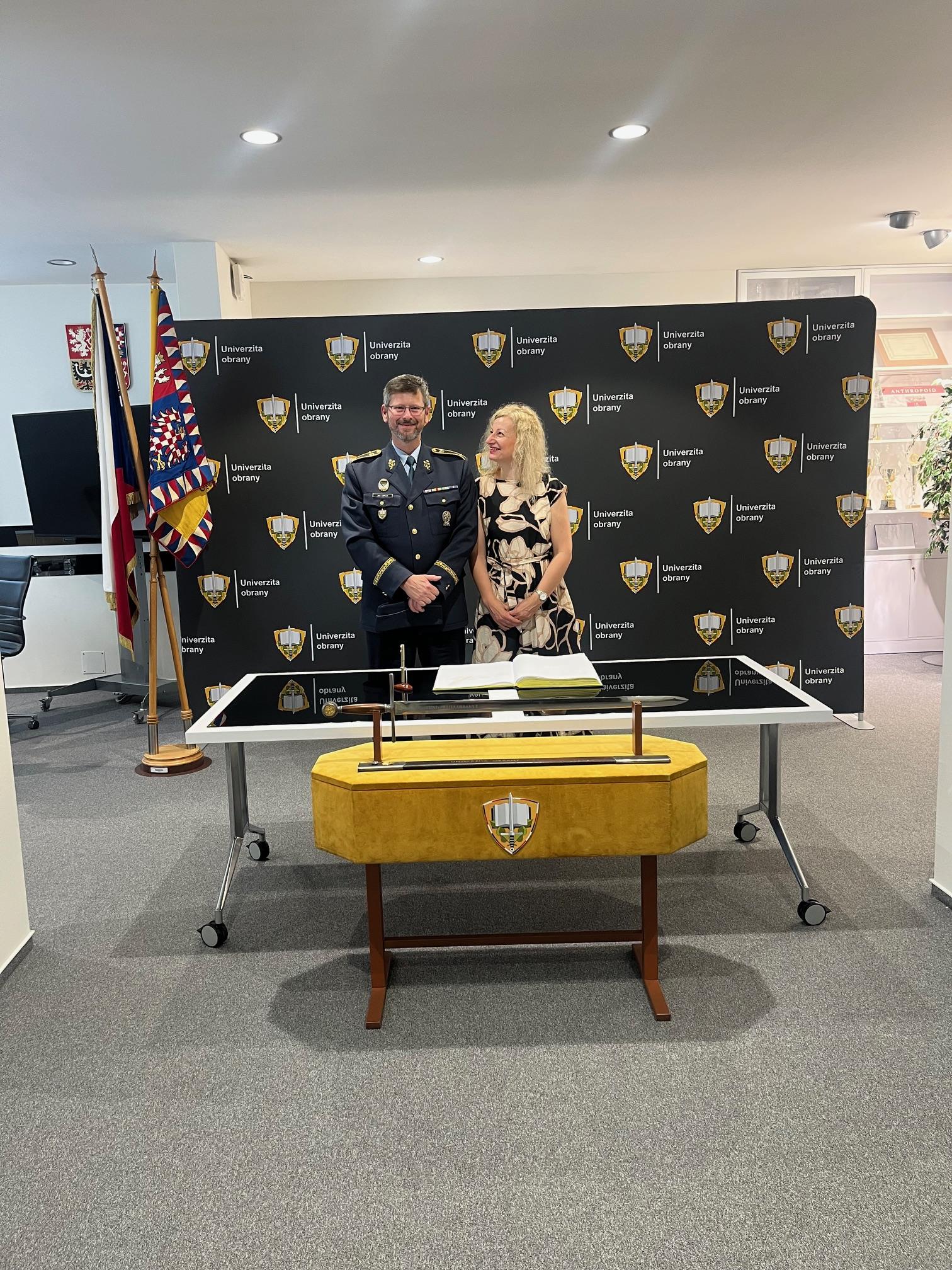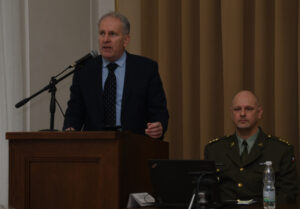A daily temperature of 35 °C in the shade, 90% humidity, clear to partly cloudy skies, a 6-hour time difference, high traffic density, a diverse and rugged landscape, an inspiring research atmosphere, and a friendly and welcoming environment — these are the conditions that characterized the business trip to Taiwan undertaken from July 13 to 20 by Captain Jana Švecová from the Faculty of Military Leadership and Professor Luboš Hes from the Technical University of Liberec.
The visit took place within the framework of a project supported by the Technology Agency of the Czech Republic, titled „Portable Modular MoCap System for Recording and Evaluating the Condition of Armed Forces and Rescue Service Personnel“ (Project Code: TM05000017). The project focuses on developing an innovative solution for collecting data on physical performance and condition of security force specialists.
The team was hosted at the ergonomic motion capture laboratory of the Department of Industrial Engineering and Management at National Tsing Hua University in Hsinchu by Professor Yun-Ju Lee, one of the leading Taiwanese investigators of the MoCap project. She also consulted on the project’s progress and results and took a keen interest in the issue of optimizing soldier clothing comfort.
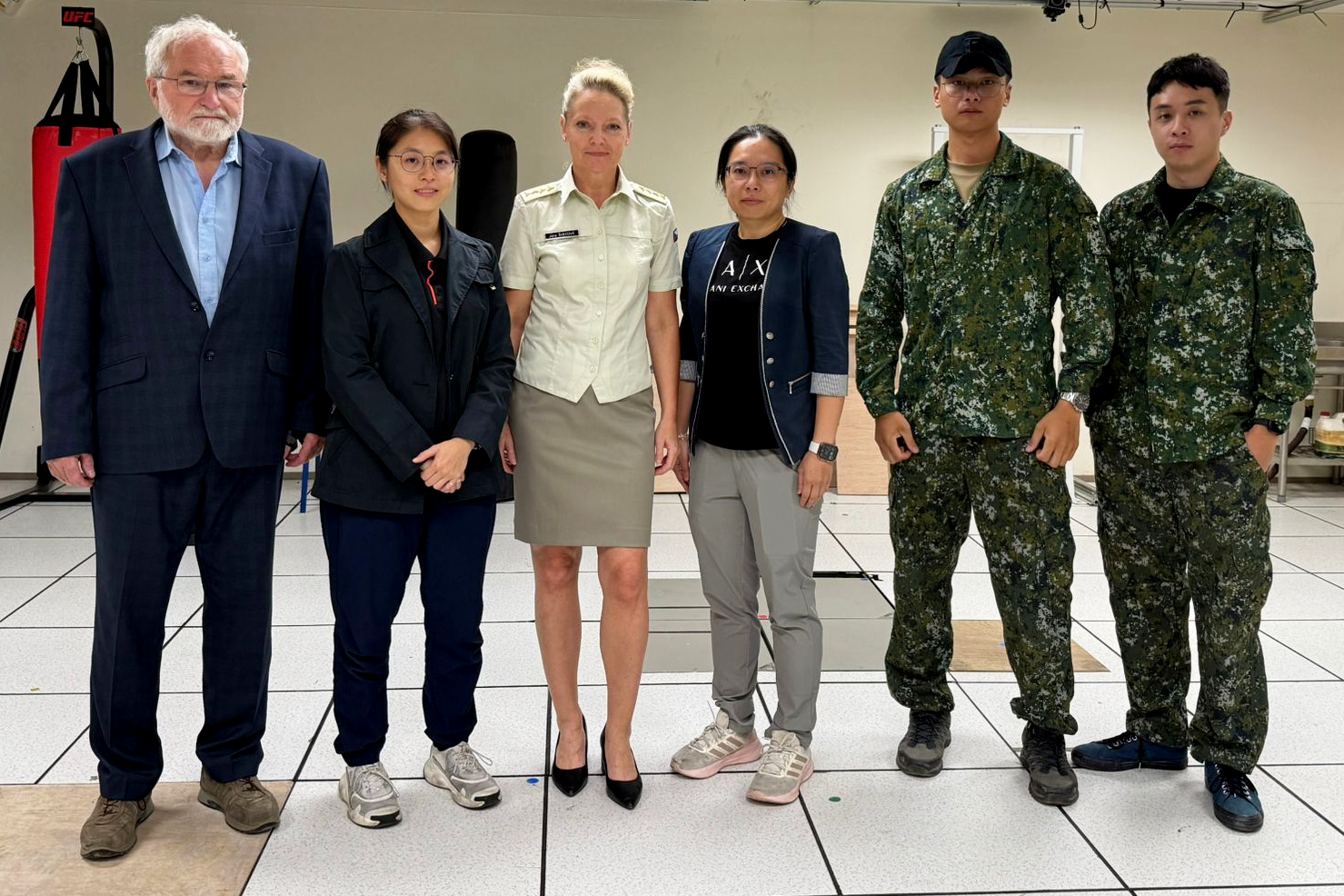
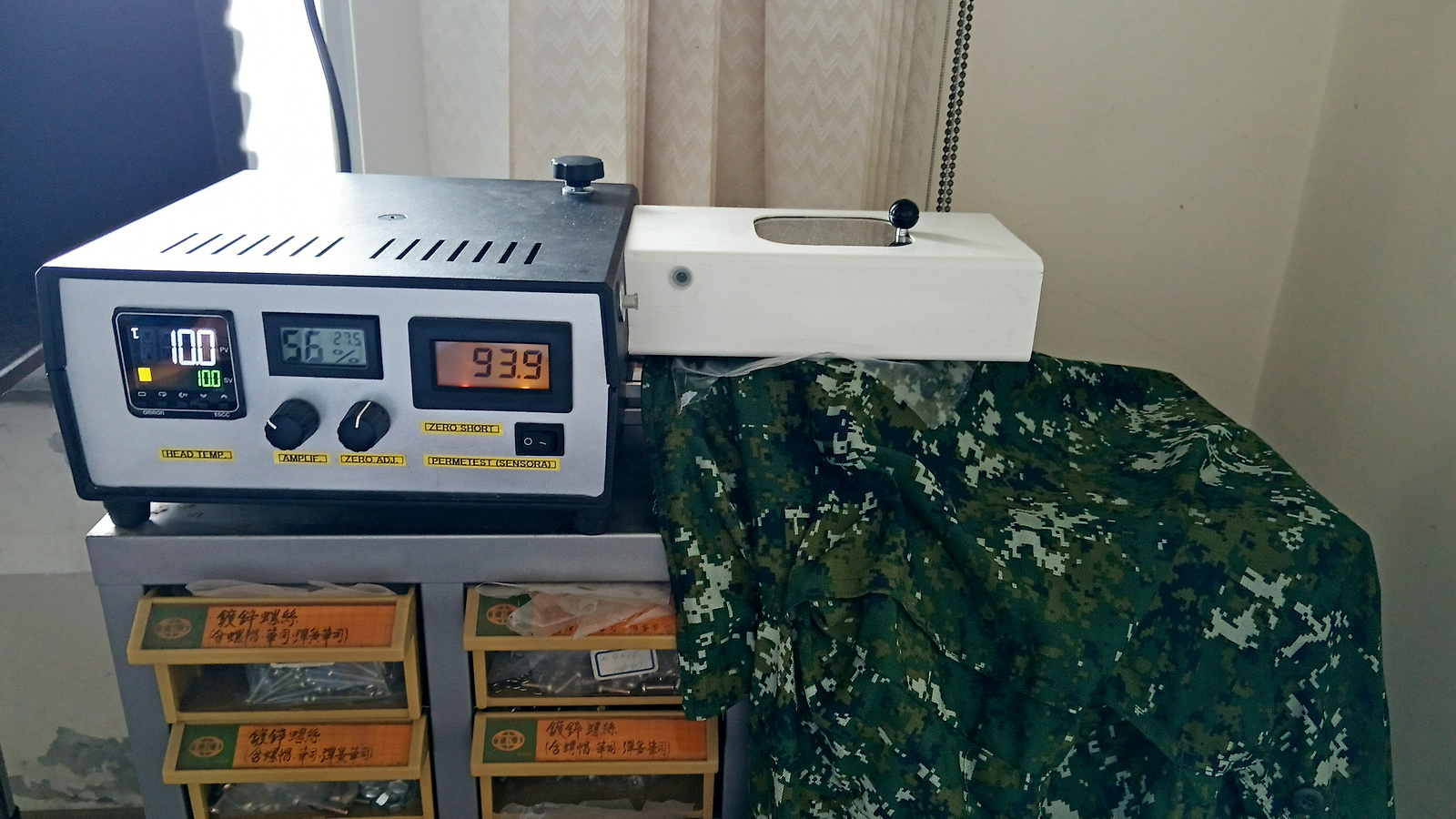
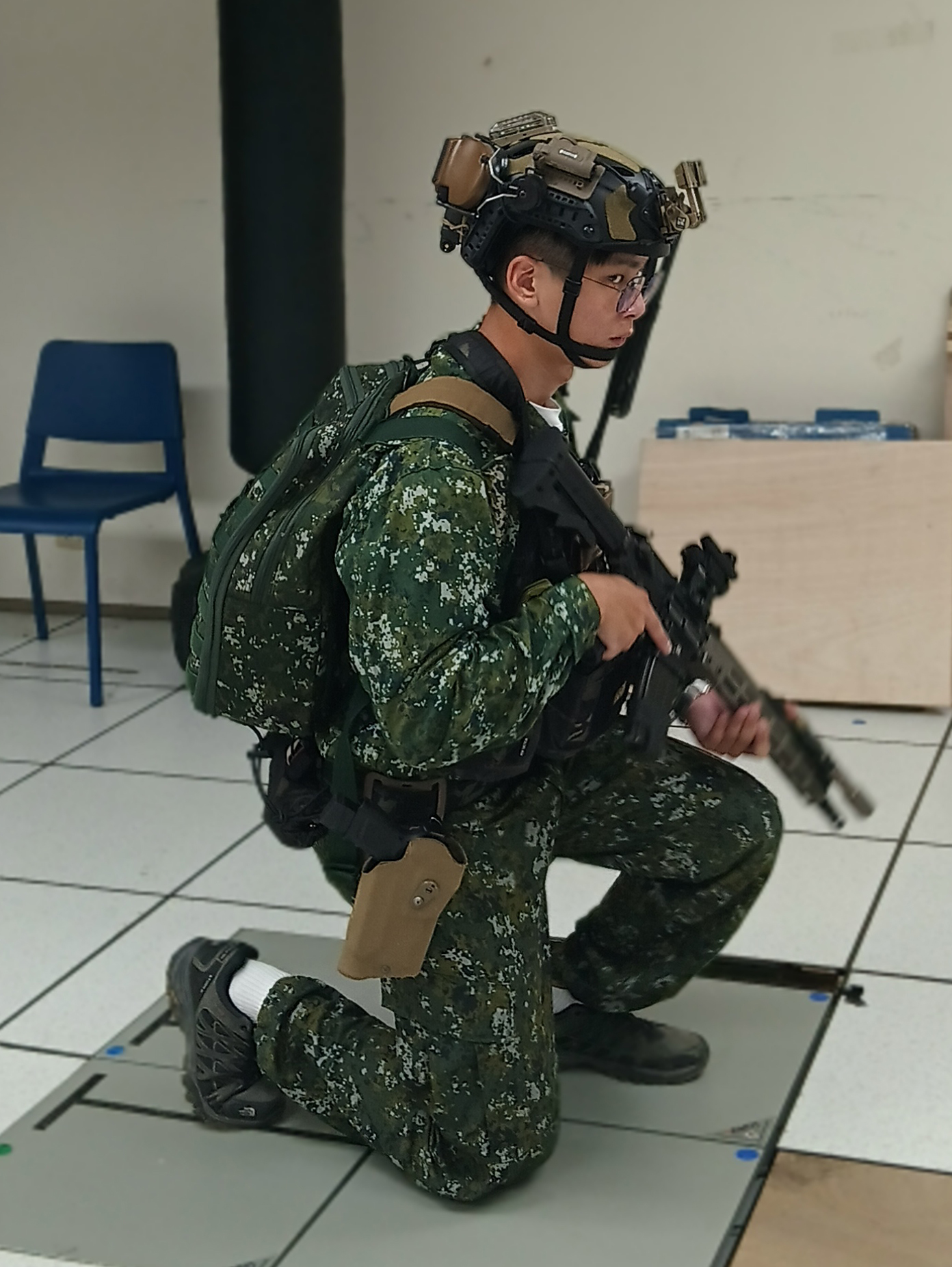
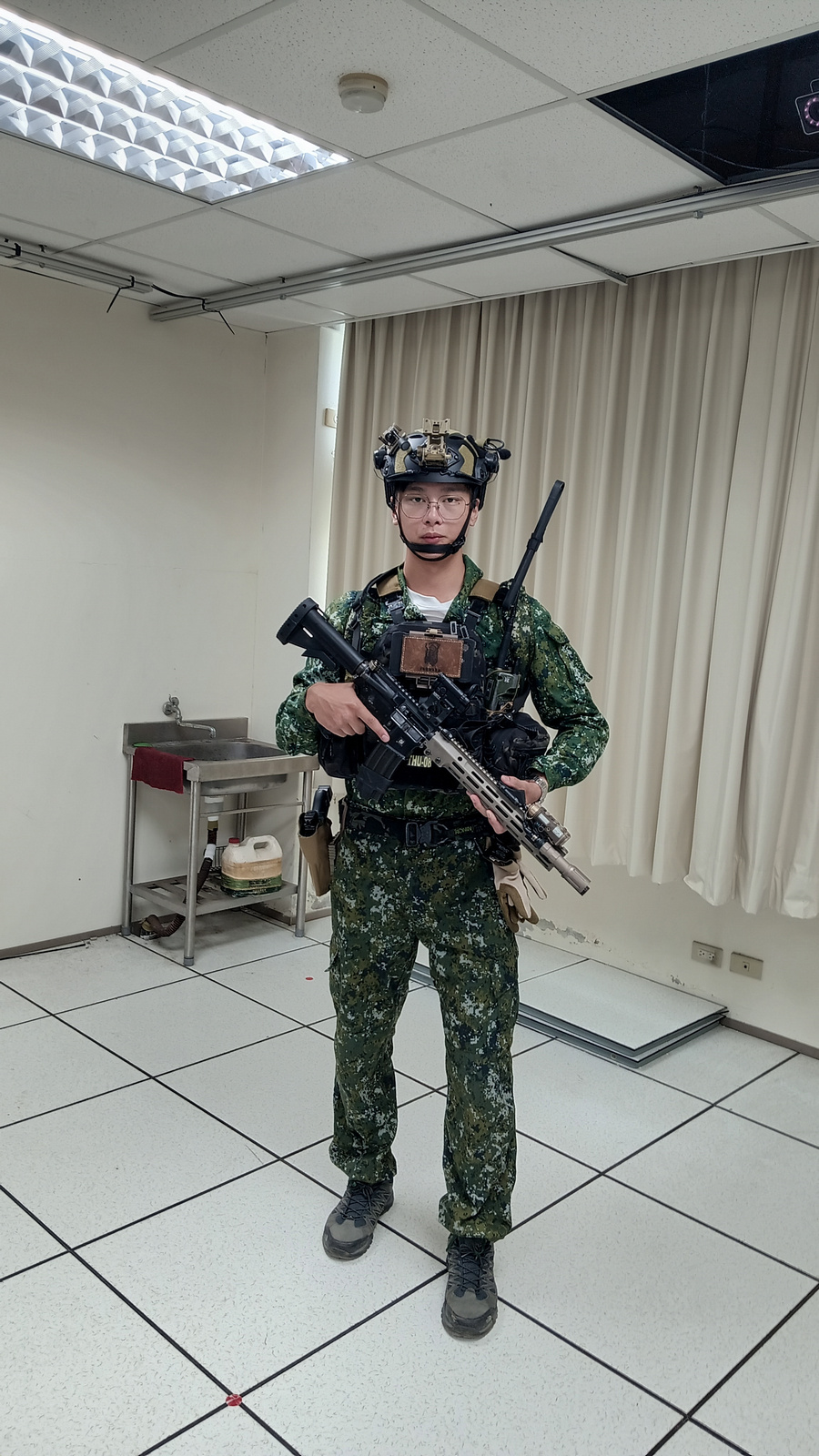
As part of a specific task within the project, subjective assessments of clothing comfort were carried out with Taiwanese soldiers during controlled physical activities while wearing military load-bearing equipment. Additionally, objective measurements of the textile materials used in local military uniforms were conducted under defined laboratory conditions using the Permetest device.
Among the key outcomes of the evaluation was the determination of the vapor permeability and thermal resistance values of Taiwanese field uniform materials, in both dry and wet states, for the purpose of calculating the critical overheating threshold of the human body. The results will be used for evaluating the current TAČR project and for developing a follow-up project strategy.
In addition to the Taiwanese research team, the project also includes the Faculty of Military Leadership (FVL) and the Faculty of Military Technology (FVT) of the University of Defence, as well as the Czech Technical University in Prague (CTU).
Author: Viktor Sliva
Photo: Jana Švecová

